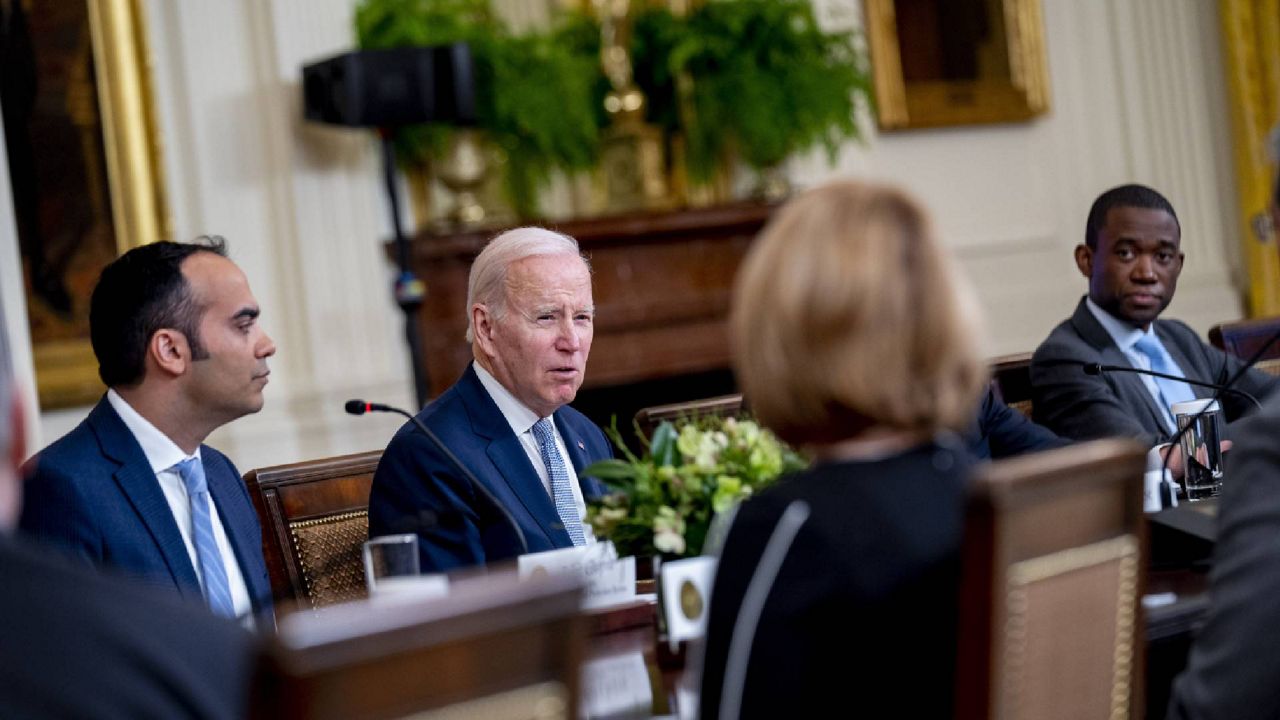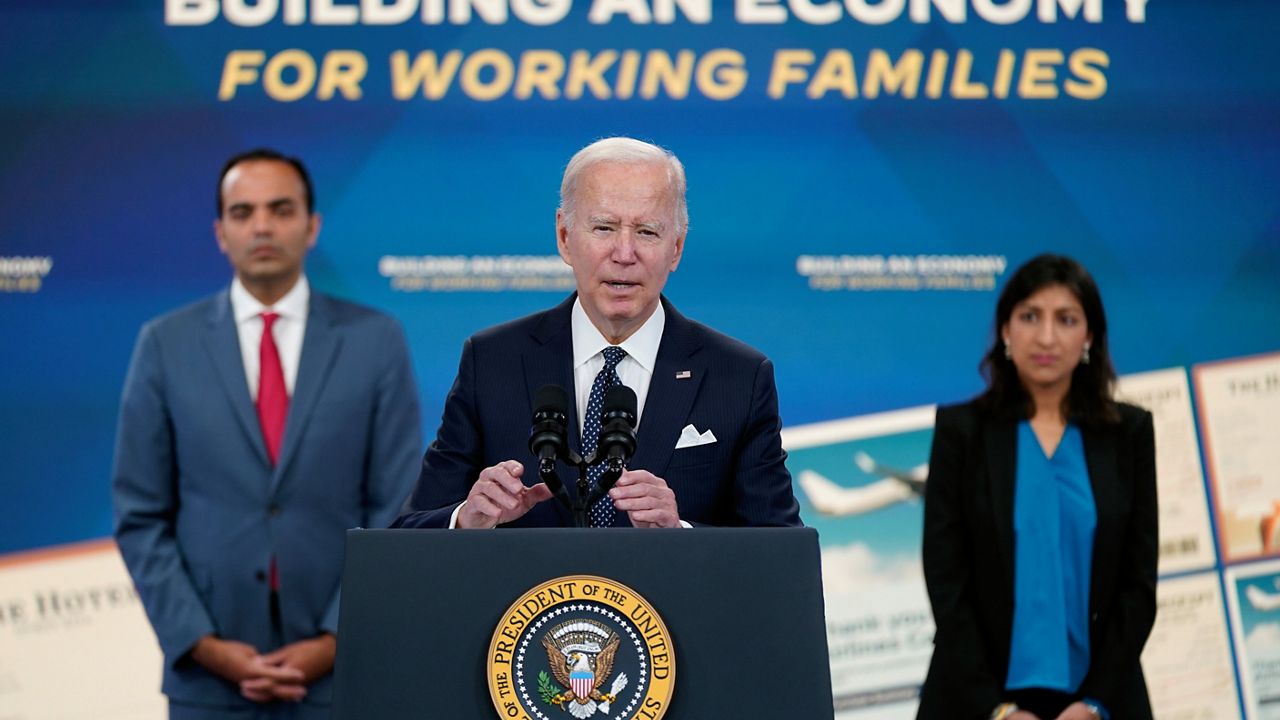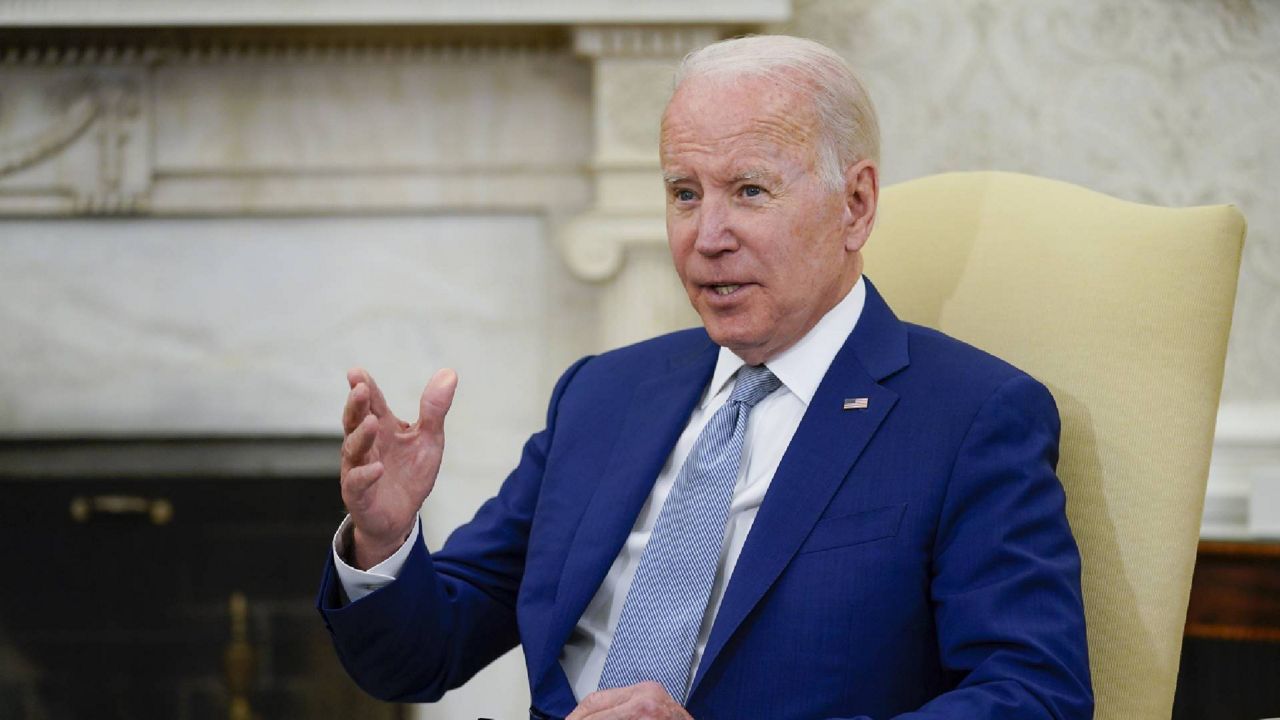Speaking at the busy Port of Los Angeles on Friday, President Joe Biden highlighted his effort against record-high price increases and his attempts at easing supply chain backlogs as inflation rose to its highest level in decades last month. He also called out oil companies for their profits amid a deficit in global oil supply and high prices.
Biden spoke as supply chain issues started by the pandemic persisted, exacerbated by the war in Ukraine and as gas prices increased once again in May, a major factor in driving consumer prices 8.6% higher since last year.
The president reiterated that fighting inflation was his “top economic priority.”
“I understand Americans are anxious,” he said. “America should also understand our economy has unique strengths that we can build on. The job market is the strongest it’s been since World War Two, notwithstanding inflation.”
The Biden administration this month has turned its focus to the economy and to their economic wins, such as the millions of jobs added since he took office and historically low unemployment.
The president said the U.S. is “better positioned” than other countries to recover from what he called a “global inflation” problem.
“I count recovery as going from where we are today in terms of the economy to stability,” he said. “It is strong as can be, but for inflation, but for gas and food.”
Biden has attempted to slow inflation by improving port operations and twice releasing oil from the U.S. strategic reserve, in addition to other regulatory initiatives and a domestic agenda that includes budget deficit reduction and would need congressional approval.
The president on Friday called out companies such as Exxon Mobil for not producing more oil during the global shortfall despite a rise in profits.
“Exxon made more money than God this year,” he joked.
“One thing I want to say about the oil companies,” he added. “They're not drilling. Why aren't they drilling? Because they make more money not producing more oil.”
And Biden on Friday also pointed to his administration’s work on ports specifically, making them a core focus of a White House supply chain task force and its new czar as demand continues to outpace supply. Biden once again highlighted the 2021 holiday season — when around 97% of goods were delivered on time — as a win.
Yet progress at the Los Angeles and Long Beach ports appears to have slowed. In late May, the LA port reported that the number of long-dwelling containers sitting on docks had declined by nearly 50% since the fall.
On Friday, Biden highlighted a lesser decline of nearly 40% since that time period.
Still, the LA port’s chief credited the Biden administration’s coordination with the progress made so far, with the port now moving out a record 200,000 containers on a rolling 30-day average.
Gene Seroka, executive director of the Port of Los Angeles, said there were many levers that caused performance to improve in terms of getting goods to consumers and businesses faster. But he specifically credited the “convening powers of the federal government to bring people to the table” and the Biden administration’s focus on the supply chain.
“We’ve reduced those ships that have been waiting to get into the port by 75% this year,” Seroka said. “These guys are really working because we’ve got strong consumer demand still.”
The Biden administration is seeking to further reduce shipping prices with a bipartisan bill that the House could pass as soon as Wednesday next week. The bill would give the Federal Maritime Commission tools to make ocean-based trade more efficient and price competitive, improving the flow of exports and imports.
“What I have found here in California is that they want us to do whatever we could possibly do to address the inflation problem — and this is clearly one significant part of the problem,” said Rep. John Garamendi, D-Calif., a sponsor of the bill.
Rep. Dusty Johnson, R-S.D., said he saw a need for the additional tools in part after a cheese processor in his state had two million pounds of lactose rot because no carriers would take the product even though 60% of shipping containers were going back empty to Asia.
“This is not a silver bullet with regard to inflation,” said Johnson, who sponsored the bill. But he noted that, as the provisions get implemented, “this will absolutely have an impact on inflation.”











